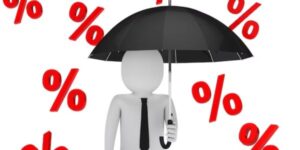Business loan with adverse credit | This strategically positions Connect Members to secure favourable client outcomes, even in intricate cases. It enables us to introduce inventive alternative solutions that clients may not have considered.
Essentially, this exemplifies the essence of expanding your business horizons. Connect Members cultivate stronger client relationships by consistently offering innovative approaches and serving as a reliable source of comprehensive financial guidance. They position themselves as indispensable partners in their clients’ financial journeys.
This proactive approach adds value to clients and catalyses business growth.
What constitutes poor credit?
A credit history is created for individuals and businesses that have used credit, such as loans or credit cards. However, a history of late payments or failing to settle debts fully harms your credit score. This makes securing a business loan with adverse credit challenging.
Similarly, exceeding your credit limit or having a bankruptcy in the past has a negative impact. Consequently, lenders view you as a higher-risk borrower and may be less inclined to extend credit. This highlights the challenges individuals and businesses face when seeking loans with adverse credit.
If your business is in its early stages and has not borrowed, it won’t have a credit history. This means lenders need more information about your borrowing responsibility. While this differs from having poor credit, it can still pose obstacles when seeking loan approval.
In such cases, some lenders may assess your creditworthiness by evaluating your personal credit score instead of your business’s credit history. When seeking a business loan with adverse credit, it’s crucial to understand how your credit history affects your borrowing prospects. Additionally, gradually exploring strategies to improve your creditworthiness is essential.
Is obtaining a business loan with a poor credit history more costly?
Interest Rates for a Business Loan With Adverse Credit:
Business loans with poor credit often carry substantially higher interest rates. Lenders see borrowers with poor credit as riskier, leading them to impose higher interest rates to offset this perceived risk. Monthly interest payments could be notably higher than with a regular business loan. To mitigate this, compare offers from various lenders and investigate strategies to improve your creditworthiness over time.
Fees for Early Repayment:
Many business loans, especially those for individuals with poor credit, might include fees for early repayment. Although repaying your loan early is generally considered responsible, these fees can affect your overall savings. When considering a business loan with poor credit, inquire about any penalties for early repayment and factor them into your decision-making.

Late Payment Fees:
Timely payments on a business loan with poor credit are crucial to avoid late payment fees. These charges can further strain your financial situation. Adhering to the loan’s repayment schedule is essential to avoid late payment fees and maintain a positive relationship with your lender. Establish a solid plan for punctual payments to prevent unnecessary financial setbacks.
Other Possible Charges
Besides interest rates, early repayment fees, and late payment penalties, additional charges may be associated with a business loan for poor credit. These could include application fees, underwriting fees, or other costs. To fully understand the total cost of borrowing, review the loan agreement carefully and inquire about any potential extra charges.
Securing a business loan with poor credit often involves higher costs, including elevated interest rates and potential fees for early repayment and late payments. To make informed financial decisions, thoroughly assess loan offers, evaluate your ability to manage the associated costs, and explore opportunities to improve your creditworthiness over time. Taking a proactive approach can help you secure better financing options in the future, easing the financial burden of business loans for individuals with credit challenges.
Is it viable to obtain a business loan even when your credit history is less than ideal?
Specialised financial products cater to individuals and businesses facing poor credit challenges. These are commonly known as “poor credit business loans.” Exploring these tailored loan options can be prudent if your credit history has made it difficult to secure a traditional business loan.
These specialised financial products offer a lifeline when seeking a business loan with adverse credit. They provide entrepreneurs and business owners with the funding to grow and thrive in challenging circumstances.
Do business loans for individuals with poor credit entail increased associated expenses?
Business loans for individuals with less-than-ideal credit, often called “Business Loans with Adverse Credit,” typically carry higher interest rates. Additionally, it’s crucial to consider potential fees, such as early repayment charges or late payment penalties.
Therefore, thoroughly examine the terms and conditions of any business loan tailored for poor credit. Let’s delve deeper into these financial considerations.
Interest Rates:
Business loans for individuals with poor credit, commonly known as “Business Loans with Adverse Credit,” usually involve higher interest rates. This is due to the increased risk lenders perceive when granting credit to individuals with a history of credit challenges. Lenders impose higher interest rates to compensate for this risk. The exact rate can vary based on your creditworthiness and the lender’s policies. Thus, comparing offers from various lenders to secure the best terms is essential.
Early Repayment Fees:
Some business loans for individuals with poor credit may include early repayment charges. Although early repayment is often considered a good financial move, these fees can reduce potential savings. It’s advisable to inquire about early repayment penalties and consider them in your decision-making process.
Late Payment Penalties:
Missing scheduled payments on a business loan for poor credit can result in late payment fees. These fees can add further financial strain, highlighting the importance of sticking to the repayment schedule. To avoid late payment fees, it’s crucial to have a solid plan for making timely loan payments.
Origination Charges:
Certain lenders may charge origination fees when disbursing a business loan to a borrower with poor credit. These fees cover administrative expenses for processing and distributing the loan. Origination fees can vary, so it’s essential to review the loan agreement thoroughly to understand the overall cost of borrowing.
Additional Expenses:
Depending on the lender and loan terms, a business loan for poor credit may involve other costs. These could include application fees, underwriting fees, or other miscellaneous expenses. A comprehensive review of the loan documentation is vital to identify all potential charges.
While business loans for poor credit can provide a financing solution, they often come with higher costs. To make informed decisions and reduce financial risks, compare loan offers, evaluate the overall cost of borrowing, and understand the terms and potential fees.
Furthermore, improving your creditworthiness over time can help you qualify for better loan terms, thus alleviating the financial burden of high-interest loans.
Why businesses with adverse credit should consider a mortgage adviser
Obtaining a business loan with a poor credit history can be challenging. However, businesses with bad credit should consider using a mortgage broker. Here’s why:
| Reason | Explanation |
|---|---|
| Access to a Network of Lenders | Mortgage brokers have access to a wide panel of lenders, including those that specialise in business loans with adverse credit, offering options often unavailable through traditional channels. |
| Tailored Loan Recommendations | Brokers assess your credit history and business needs to provide personalised loan options that match your goals and limitations, improving your chances of approval. |
| Streamlined Application Process | They assist with documentation, application completion, and lender communication, saving time and enhancing your application’s presentation. |
| Guidance on Credit Improvement | Brokers offer strategic advice on improving your credit profile, such as better debt management and payment strategies, setting you up for future financing success. |
| Efficiency and Convenience | Instead of approaching multiple lenders independently, brokers use their expertise to help you quickly identify the best loan opportunities. |
Securing a Business Loan With Adverse Credit can be tough. A mortgage broker can be a valuable ally if your credit history needs improvement. Their expertise extends beyond home loans to include business financing.
If you’re facing credit challenges, consulting a mortgage broker is a wise step to explore viable financing options. To learn more about business loans, read our comprehensive guide, “Understanding Commercial Mortgages“
Thank you for reading our publication on “Business Loan With Adverse Credit | How Brokers Can Help.” Stay “Connect“-ed for more updates soon.


